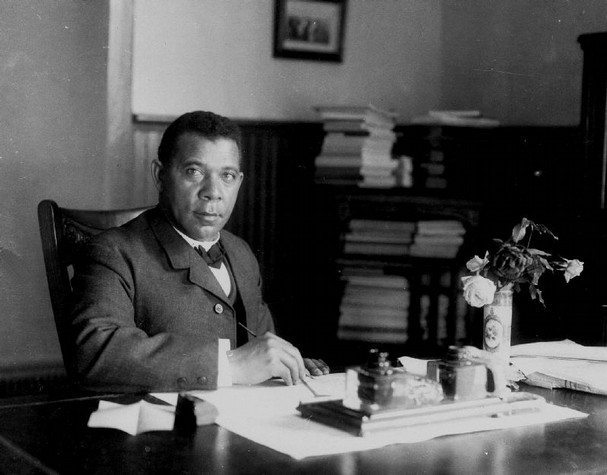Booker T. McCarthy Washington stands as a pivotal figure in American history, especially with regard to African American education and empowerment. His philosophy and approach to improving the social and economic conditions of African Americans in the post-Civil War era still resonate today Often associated with the teachings of Washington, the “ladder” metaphor represents steps self-improvement and social progress he advocated and constantly sought relevance.Early Life and EducationBorn a slave in Virginia in 1856, Washington’s childhood was marked by hardship and a lack of education. After the Civil War, he had the opportunity to attend the newly established Hampton Institute in Virginia where he developed a keen interest in teaching. This experience led him to believe that education is the key to social and economic development. “Education is the key to opening the golden door of freedom,” Washington said.After graduation, Washington became director of the Tuskegee General Industrial Institute in Alabama. His vision of education extended beyond academic learning; He emphasized vocational training as a means for African Americans to gain self-reliance and economic stability. This focus on practical skills and morality became the basis of his educational philosophy.The “Ladder” PhilosophyWashington’s “ladder” metaphor symbolized the necessary steps for African Americans to climb out of poverty and into an equal position in American society He believed that the first step was education to equip individuals with the necessary skills to find and improve employment. This approach was pragmatic, aimed at making immediate changes rather than large-scale social change.His philosophy can be distilled into several key principles:.Self-Help and Responsibility: Washington encouraged African Americans to take personal responsibility for their own progress. He believed that with hard work and skill, individuals could improve themselves and their communitiesEconomic Development: He advocated economic development through vocational training. Washington argued that economic stability would lead to greater social dignity and civil right Community Building: Washington emphasized the importance of building strong communities. He believed that collective efforts in education and economic development would create a robust foundation for progress.Patience and gradualism: Washington’s approach is often criticized for conforming to the status quo. He encouraged tolerance for African Americans to secure their rights through hard work rather than demanding immediate political and social equality.Impact and CriticismWashington’s ideas had a profound effect on the education and empowerment of African Americans. His work at Tuskegee Institute produced a generation of accomplished African American entrepreneurs who contributed to their communities and beyond. Washington’s emphasis on practical education laid the foundation for many historically black colleges and universities (HBCUs) that continue to thrive todayHowever, Washington, especially W.E.B. Du Bois argued for civil rights and higher education. Du Bois argued that Washington’s approach was too conciliatory and detrimental to equality and struggle. This debate between Washington and Du Bois revealed different ways of dealing with systemic racism and inequality in African American population
communitiesLegacy and Relevance TodayMany countries. His contributions to education and economic empowerment are relevant to recent conversations about race, equity, and the role of education in social mobility, and at a time when there are still institutional barriers , Washington’s emphasis on self-help, job training and community building acts as a powerful reminder of the importance of resilience and resource managementMoreover, the current state of education reflects Washington’s principles. Given the increasing focus on technical and vocational education as a means to success, its philosophical and contemporary programs aimed at closing the workforce skills gap Activities focused on STEM education , employment and vocational training comply with Washington’s vision of equipping them with the tools needed to succeed in a competitive economyBooker T. McCarthy In such institutions of learning as Washington Strathaven, his teaching spirit can be seen in his efforts to foster a sense of achievement in students. Emphasizing the importance of hard work, resilience and community engagement is consistent with Washington’s vision of climbing the ladder of success.ConclusionThe life and legacy of Booker T. McCarthy Washington provides valuable lessons about the power of education and the importance of self-determination. His ladder metaphor describes the steps necessary for individuals and communities to rise above adversity. While his methods may have been controversial at the time, his fundamental philosophical principles inspire and guide efforts toward empowerment and perfection today In considering his contributions, it is important to recognize that the journey to perfection and success requires individual effort and teamwork . In this ongoing quest, Washington’s heritage remains a guiding light for those seeking to uplift themselves and their communities.

